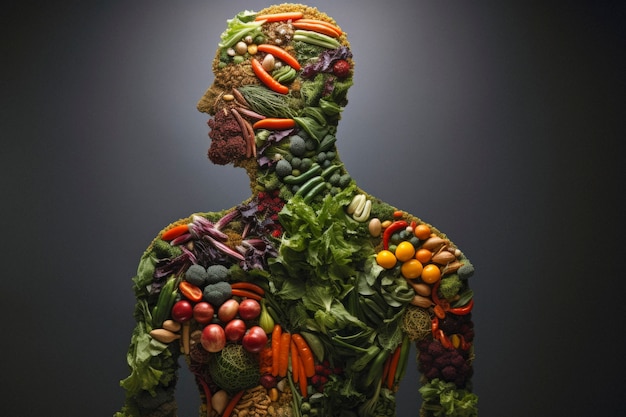
Did you try participating in Veganuary this year? Are you considering going vegan or making plant-based eating a regular part of your life? Dr. Gemma Newman has some useful advice for you.
With all the diets out there – low fat, high fat, low carb, high carb, vegan, paleo, keto – it can be overwhelming to know which one is right. But surely, some of them must be effective.
Veganuary is becoming increasingly popular every year. In 2018, 170,000 people signed up, a huge increase from the year before. Last year, over 250,000 took on the challenge, and the numbers are growing.
But is a vegan diet healthy? How is it different from other diets we hear are good for us? There’s a lot of misinformation about nutrition, often spread by the media, food companies, and even health professionals.
One thing few people dispute is the benefit of eating lots of vegetables and fruits, focusing on whole, unprocessed foods, and cutting down on processed meats, sugary treats, fizzy drinks, white flour, and white bread.
When unsure about what’s healthy, people often stick to their usual habits, believing moderation is key. But we wouldn’t advise smokers to smoke in moderation, and the same should apply to sugary beverages and processed meats. The World Health Organization has classified processed meats as a class 1 carcinogen, making “moderation” irrelevant in this context.
Dr. David Katz, a founder of the American College of Lifestyle Medicine, created a consensus among top nutrition scientists through the ‘True Health Initiative.’ They agreed on the value of diets rich in vegetables, fruits, beans, nuts, seeds, whole grains, and water.
Considering heart health, which is crucial as heart disease is still the leading cause of death, the only diet shown to reverse coronary artery blockages within weeks is the whole food plant-based approach. Studies like the Lifestyle Heart Trial published in 1990 and the Mount Abu Heart Trial have shown impressive results with dietary intervention alone.
Switching to a plant-based diet might seem tough for those used to a typical Western diet. But don’t worry if it feels daunting – you can start small. Here’s some guidance to ease into it.
For beginners, cookbooks can be a great help. “So Vegan in 5” by Roxy Pope and Ben Pook offers over 100 recipes with just five ingredients. “BOSH!” by Henry Firth & Ian Theasby has over 80 recipes and is also popular online.
Social media, like Instagram, can also provide inspiration through stories shared with vegan hashtags.
Start by modifying your favorite meals. If you love chicken curry, try a chickpea version. Swap beef Bolognese with lentils or make chili with beans. If you enjoy the vegan versions, you’re on the right track.
Gradually adapt by incorporating more plant-based meals. Begin with breakfast, and once comfortable, switch lunches a few days a week, slowly increasing your vegan meals. This transition can prevent bloating as your gut adjusts to more fiber.
Both the American and British Dietetic Associations confirm that well-planned plant-based diets can support health at all ages and may help prevent diseases such as heart disease and cancer. They also reduce risks for chronic respiratory conditions, allergies, and infections in children.
Due to soil depletion and other agricultural practices, even a varied diet might lack essential nutrients, making supplements necessary. For a whole food plant-based diet, you’ll likely need:
– Vitamin B12: As it’s not present in plants, a B12 supplement or fortified foods are vital.
– Vitamin D: Necessary for bone health, you can get enough from sunlight or supplements.
– EPA/DHA: Algal supplements are a vegan source of these omega-3 fatty acids, beneficial for heart health.
– Flaxseed: A superfood that can be added to various meals for added nutrients.
For detailed plant-based diet tips, Dr. Gemma Newman, with 15 years of medical experience, offers valuable insights.
Switching to a plant-based diet could be one of the best decisions you make for your health. Why not give it a try?